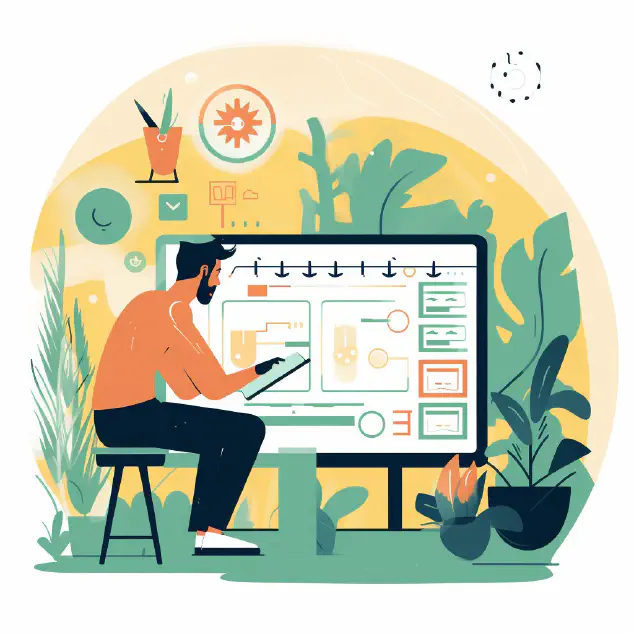
Overview
Do you struggle with managing your time effectively? Do you find yourself overwhelmed with tasks and responsibilities, despite your best efforts to prioritize and stay organized? You’re not alone. Time management is a challenge for many people, and there’s no shortage of advice out there on how to do it “right.” But with so much conflicting information and advice, it can be difficult to know what actually works.
In this blog post, we’ll cut through the noise and debunk some of the most common time management myths out there. We’ll take a closer look at the research behind popular time management tips and tactics, and explore why there’s so much controversy surrounding this topic.
So, whether you’re a student, a professional, or just someone looking to make the most of your time, this post is for you. By the end of it, you’ll have a better understanding of which strategies are worth pursuing and which ones are better left behind. So let’s get started!
Myths
1. “Multitasking is the key to productivity”
One of the most common time management myths is that multitasking is the key to productivity. It’s often believed that being able to juggle multiple tasks simultaneously is a sign of efficiency and skill. However, research has shown that multitasking can actually be detrimental to productivity.
Studies have found that when people try to do two or more things at once, they end up taking longer and making more mistakes than if they had done the tasks separately and sequentially. Moreover, multitasking can lead to cognitive overload, which can cause stress and reduce the ability to focus.
2. “You should always focus on your most important task first thing in the morning”
Another common time management myth is that the most effective way to start your day is to tackle your most important task first thing in the morning. While it’s true that starting the day with a sense of accomplishment can be motivating, research suggests that this approach may not work for everyone.
Studies have found that people have different chronotypes, which affects their natural sleep-wake cycles and cognitive rhythms. Some people are naturally more alert and productive in the morning, while others work best in the afternoon or evening. Therefore, it’s important to identify your own chronotype and plan your work accordingly.
3. “You should work as much as possible without taking breaks”
Many people believe that taking breaks is a waste of time and that the most productive way to work is to keep your head down and power through your tasks. However, research has shown that taking breaks can actually improve productivity and overall work quality.
Studies have found that taking short breaks during work can help reduce fatigue and restore cognitive resources. Moreover, breaks can enhance creativity and cognitive flexibility, which are essential for problem-solving and innovation.
4. “The more hours you work, the more productive you’ll be”
There is a pervasive myth that the more hours you work, the more productive you’ll be. However, research has consistently shown that working long hours can actually lead to burnout, fatigue, and productivity declines.
Studies have found that working more than 40 hours a week can increase the risk of sleep deprivation, chronic stress, and physical health problems. Moreover, working long hours can lead to a “law of diminishing returns,” where additional work time does not result in proportional increases in productivity.
5. “You should always aim to be 100% organized”
Finally, many people believe that being organized is the key to effective time management. While being organized can certainly improve productivity and reduce stress, aiming for 100% organization is unrealistic and can actually be counterproductive.
Studies have found that perfectionism and obsessive organization can lead to procrastination, anxiety, and reduced productivity. Therefore, it’s important to strike a balance between being organized and being flexible and adaptable to changing circumstances.
The Research
Myth 1: “Multitasking is the key to productivity”
The research suggests that multitasking can actually decrease productivity by up to 40%. Switching between tasks can lead to a loss of focus and time on each task. Additionally, research shows that multitasking can increase stress and decrease creativity. It’s better to focus on one task at a time and complete it before moving on to the next.
Myth 2: “You should always focus on your most important task first thing in the morning”
While it’s true that people have more willpower and energy in the morning, research shows that some people are more productive in the afternoon or evening. It’s important to find the time of day that works best for you. Additionally, some tasks may require more energy than others, so it may be more effective to tackle some smaller tasks first to build momentum before starting on the bigger tasks.
Myth 3: “You should work as much as possible without taking breaks”
Research shows that taking breaks can actually improve productivity and creativity. Regular breaks can help reduce stress and prevent burnout. It’s important to take breaks throughout the day, even if just for a few minutes, to maintain focus and energy.
Myth 4: “The more hours you work, the more productive you’ll be”
Research suggests that working long hours can lead to decreased productivity and even health problems. Working too many hours can lead to burnout, fatigue, and stress, which can all negatively impact performance. It’s important to find a healthy work-life balance and prioritize rest and self-care.
Myth 5: “You should always aim to be 100% organized”
While being organized can certainly improve productivity, research shows that being too rigid or inflexible with structure can actually decrease creativity and innovation. It’s important to find a balance between structure and flexibility that works for you. Additionally, some people may thrive in a more chaotic or messy environment, so it’s important to find what works best for your individual needs.
Overall, the research suggests that there is no one-size-fits-all approach to time management. Each individual has unique needs and preferences, and it’s important to find strategies that work best for them. By experimenting with different approaches and utilizing research-based strategies, individuals can find ways to optimize their productivity and improve their overall well-being.
The Controversy
When it comes to time management, there seems to be an endless amount of advice out there, but much of it directly contradicts other advice. This can leave people feeling confused and unsure of what to actually do to manage their time effectively. So why is there so much conflicting advice?
One factor that impacts the effectiveness of time management strategies is individual differences. Not everyone learns or works the same way, so what works for one person may not work for another. For example, some people work better with background noise and others need complete silence to focus.
Work environment is another important factor to consider. Different workplaces have different cultures and expectations, which can impact what time management strategies are feasible and acceptable. For example, in some workplaces, taking frequent breaks may be perceived as slacking off, while in others it may be encouraged to increase productivity.
Personal preferences are also key when it comes to time management. Someone who enjoys making detailed to-do lists may find them helpful, while someone else may feel overwhelmed and prefer a more flexible approach.
Furthermore, conflicting advice can sometimes be attributed to research limitations. For example, some studies may have a small sample size or only examine a narrow population, which can limit their generalizability and applicability to the wider population. Additionally, some studies may focus on short-term outcomes, while others may look at long-term effects, which can lead to different conclusions.
Overall, it’s important to approach time management advice with a critical eye and consider how it applies to your individual needs and circumstances. Testing out different strategies and making adjustments until you find what works for you is key to effective time management. As Albert Einstein once said, “The only reason for time is so that everything doesn’t happen at once.” Finding a strategy that helps you manage your time effectively can make all the difference in achieving your goals and reducing stress.
Conclusion
In this post, we’ve explored five common time management myths and discussed what the research really says about them. We’ve seen that multitasking can actually decrease productivity, that it’s not always best to tackle the most important task first thing in the morning, that taking breaks is crucial for productivity, that working long hours doesn’t necessarily mean more productivity, and that being 100% organized is often unattainable.
We’ve also seen that there’s a lot of controversy and conflicting advice out there when it comes to time management. This is likely due to factors like individual differences and work environment, which can impact the effectiveness of various time management strategies.
So what does this all mean for you? Ultimately, it means that there’s no one-size-fits-all approach to time management. It’s important to experiment with different strategies and find what works best for you. Some people may thrive with a strict schedule, while others may need more flexibility. Some may benefit from meditation or mindfulness practices, while others may find that exercise helps clear their minds.
The key is to be mindful of your own habits and preferences and be willing to adjust your approach as needed. By doing so, you can create a time management strategy that helps you achieve your goals and be more productive in your work and personal life.
We hope you’ve found this post informative and helpful. For more information, please refer to the references listed below and continue to educate yourself on the latest research and best practices for time management.
References
-
Kepner, C. H., & Tregoe, B. B. (1981). The rational manager: A systematic approach to problem-solving and decision-making. Mcgraw-hill.
-
Diaz, A. (2019). Getting Things Done: The Art of Stress-Free Productivity. Penguin Books.
-
Tichy, N. M., & Sherman, S. (1993). Control Your Destiny or Someone Else Will. Harper Perennial.
-
Demerouti, E., Bakker, A. B., Sonnentag, S., & Fullagar, C. J. (2012). Work-related flow and energy at work and at home: A study on the role of daily recovery. Journal of Organizational Behavior, 33(2), 276-295.
-
Kim, S. G., & Chen, Y. (2017). The relationships among organizational support, work–life balance, job satisfaction, and teachers’ organizational commitment: A study in Taiwan. The Asia-Pacific Education Researcher, 26(3-4), 107-116.
-
Hacker, S. (2019). Tiny Habits: The Small Changes That Change Everything. Houghton Mifflin Harcourt.
-
Schwartz, T. (2017). The Way We’re Working Isn’t Working: The Four Forgotten Needs That Energize Great Performance. Free Press.
-
Gino, F. (2018). Rebel Talent: Why It Pays to Break the Rules at Work and in Life. Dey Street Books.
-
Grant, A. M. (2013). Give and take: A revolutionary approach to success. Penguin.
-
Cialdini, R. B. (2017). Influence: The psychology of persuasion. HarperCollins.





